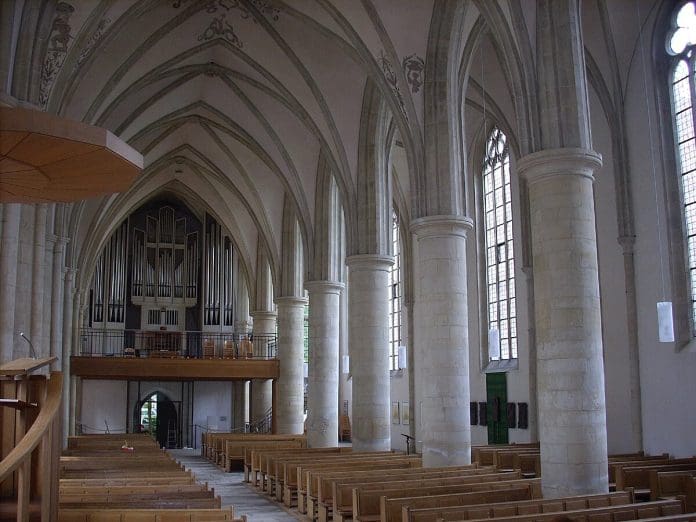In the wake of the Second World War, the world found itself grappling with the vast extent of destruction and human suffering. Among the institutions forced to confront their wartime role was the German Protestant Church. On 19 October 1945, a moment of reckoning arrived in the form of the Stuttgart Declaration of Guilt, more commonly known as the Stuttgart Confession. Issued by the Council of the Evangelical Church in Germany (EKD), this brief yet weighty document admitted the church’s failure to oppose the Nazi regime. While intended as a gesture of humility and moral responsibility, the Confession has since cast a long and complex shadow over the Protestant church, one that continues to affect its reputation and moral authority.
A Moment of Contrition
Drafted and delivered mere months after the fall of Hitler’s regime, the Stuttgart Confession was issued to a delegation of the World Council of Churches visiting the war-torn nation. In it, the EKD leadership acknowledged that they had not done enough to resist the crimes of the Nazis, stating:
“Through us infinite wrong was brought over many peoples and countries… We accuse ourselves for not standing to our beliefs more courageously…”
This rare act of corporate confession was praised by some as a necessary step towards spiritual and national healing. However, it was also criticised, then and now, for its vagueness, its timing, and, most of all, for being too little, too late.
Moral Failure and Institutional Complicity
Critics argue that the Stuttgart Confession, while well-intentioned, did not go far enough in acknowledging the active complicity of many church leaders and congregations during the Third Reich. Some Protestant pastors openly supported Hitler’s ideology, while others remained silent as Jewish citizens were persecuted, deported, and murdered. The “German Christians” movement, which sought to align Protestantism with Nazi values, was a particularly egregious example of how theology was warped to legitimise state-sponsored violence.
That the Confession failed to name these specific failures or offer restitution made it appear, to many, a symbolic gesture rather than a deep act of repentance. This perceived inadequacy has left a lingering blemish on the church’s witness.
A Legacy of Distrust
The repercussions of the Stuttgart Confession continue to be felt. For many, it signalled the church’s moral collapse during a time of crisis, raising fundamental questions about its integrity and independence. In post-war Germany and beyond, trust in institutional religion, particularly Protestantism, suffered a profound blow.
Furthermore, the Confession became a point of theological debate. Could a church that had stood by, or even participated, as unspeakable atrocities were committed be a legitimate bearer of the Gospel? The church’s post-war mission was burdened by the weight of its past inaction, and efforts at reformation and reconciliation have had to contend with this original failure.
Redemption or Ruin?
Despite its shortcomings, the Stuttgart Confession was one of the first public acknowledgements by a major institution of German guilt, setting a precedent for others. Some theologians view it as a beginning, not an end; a painful but necessary step towards confronting evil and renewing the church’s calling.
Yet, the fact remains: the Protestant Church’s proximity to power and reluctance to speak out against moral injustice during the Nazi era has irreparably altered its moral standing. The Confession, while courageous in some respects, exposed the institutional church’s failure to be a prophetic voice in times of tyranny. In doing so, it has forever tarnished its legacy.
In summary, the Stuttgart Confession of 1945 stands as a sobering testament to the Protestant Church’s moral failings during one of history’s darkest periods. It serves as both a warning and a mirror: a reminder that silence in the face of evil is itself a form of complicity. While it was a necessary act of contrition, it cannot undo the damage wrought by years of neglect, cowardice, and collusion. The stain remains; a permanent mark on the conscience of the church.







